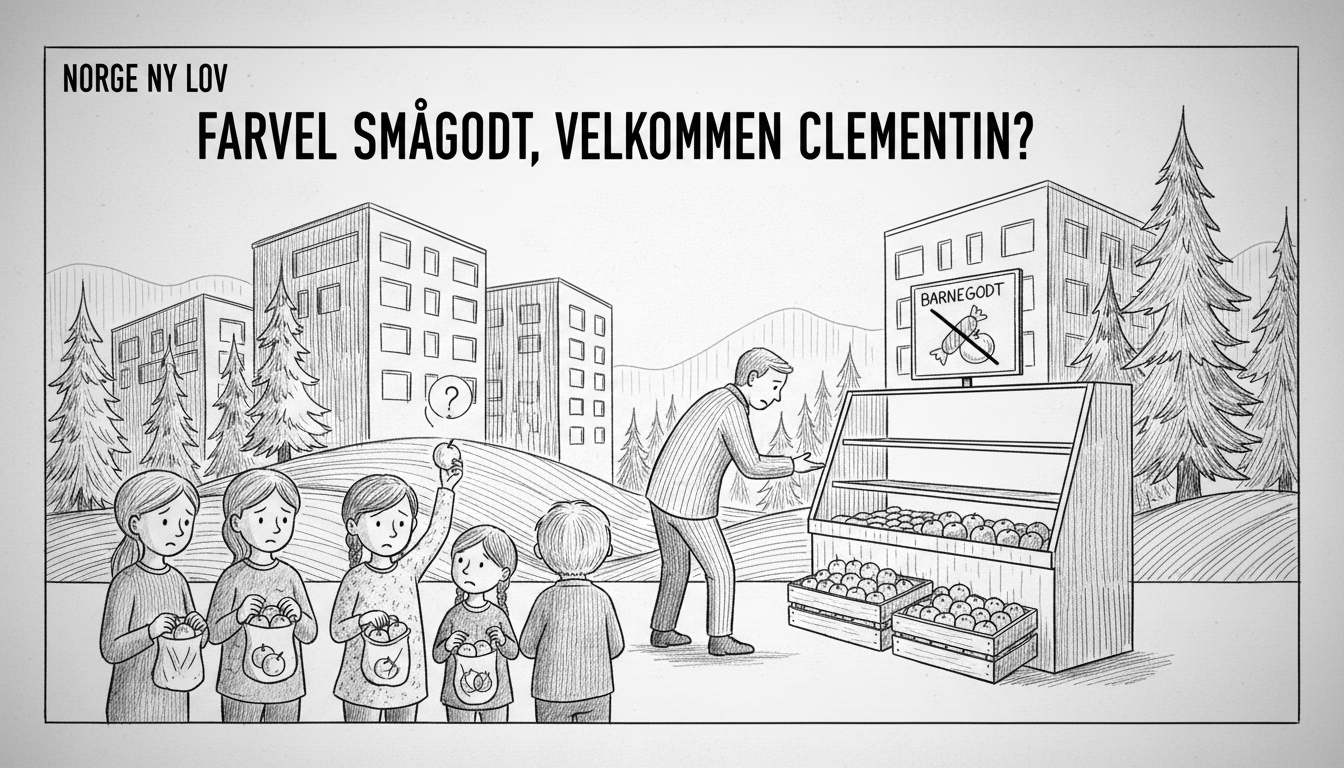A new Norwegian regulation now bans marketing of unhealthy food and drinks to children. The rules took effect in late October and cover products like chocolate, soda, ice cream, snacks, cakes, and certain breakfast cereals. Store owners across Norway must adapt to these strict guidelines that prevent them from sponsoring local events with traditional treats.
Thor Fredrik Borgersen, who operates a Rema 1000 supermarket in Siljan, expresses frustration about the changes. For years, he sponsored sports teams and community organizations with soda, waffle batter, chocolate, and mulled wine for various events. Now he interprets the new rules as ending this practice entirely.
"It's broken," Borgersen says. "There will only be one clementine left in the children's treat bags." He now considers offering carrot sticks or fruit instead to stay compliant with the law.
The regulation addresses serious public health concerns. One in five Norwegian children currently has overweight or obesity issues. Health authorities designed the rules to prevent marketing of sweets directly targeting young people.
Recent surveys show strong public support for the ban. Three out of four Norwegians back prohibitions against marketing unhealthy food and drinks to children. The government views this as a crucial measure for promoting public health.
Despite supporting the regulation's intentions, Borgersen finds the implementation too rigid. He recently had to refuse a request from schoolgirls seeking gingerbread dough for a school project. "Gingerbread cookies are probably unhealthy, but I think there should be a limit," he comments.
Local youth activities feel the impact directly. Sverre Magnus Stakston Husby, a 13-year-old who frequents the "Mekkis" workshop in Siljan, dislikes the changes. The facility lets children work on mechanics, drive go-karts, and learn about motors. Previously sponsored drinks and chocolate now come from participants' own budgets.
"It's annoying to have to use our own money for this," Husby says. "We would otherwise spend it on parts and fuel. It's just stupid."
Alexander Tangen, who helps run the popular Mekkis program, agrees the sponsorship cuts hurt. The father of two emphasizes that moderation matters more than complete elimination. "Everything is about balance," Tangen notes. "Obviously it's not healthy to load up with chocolate bars every day, but I don't think what they get here tips the scales."
Health Directorate Director Cathrine Marie Lofthus explains the regulation primarily targets massive advertising pressure directed at children. She acknowledges the new rules present interpretation challenges initially. "This regulatory framework is very new, so there are some boundary walks we need to take together," Lofthus states. Her department offers guidance to help businesses comply.
Lofthus clarifies that store owners can still provide smoothies or pizza to community youth activities. Chocolate, however, falls under products that cannot be distributed freely. "That would be seen as advertising," she confirms.
The government stands firmly behind the measure. State Secretary Usman Ahmad Mushtaq says the regulation demonstrates the government's serious approach to public health. "This measure is requested by parents and young people themselves," Mushtaq states. "It's about reducing negative influence."
This Norwegian approach represents one of Europe's strictest marketing bans targeting children's food environments. Similar regulations exist in the UK and Chile, but Norway's comprehensive coverage of both digital and physical marketing places it at the forefront of public health policy. The real test will come as businesses, communities, and families adjust to this new normal in children's food exposure.

